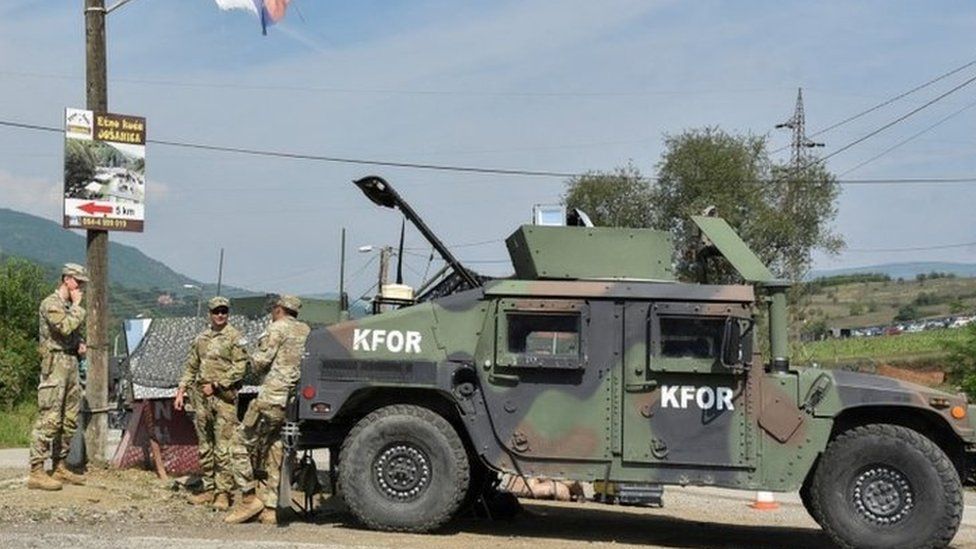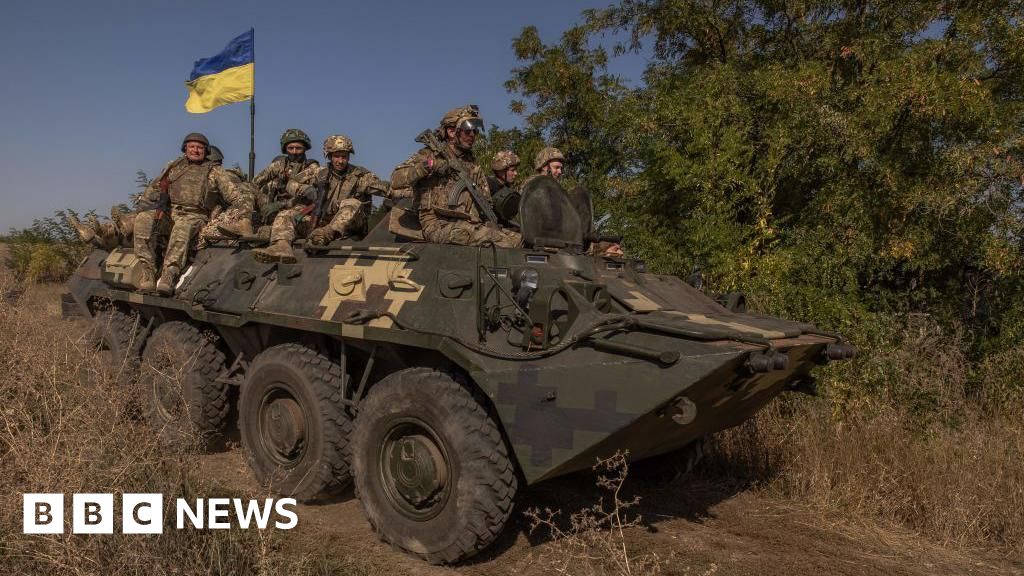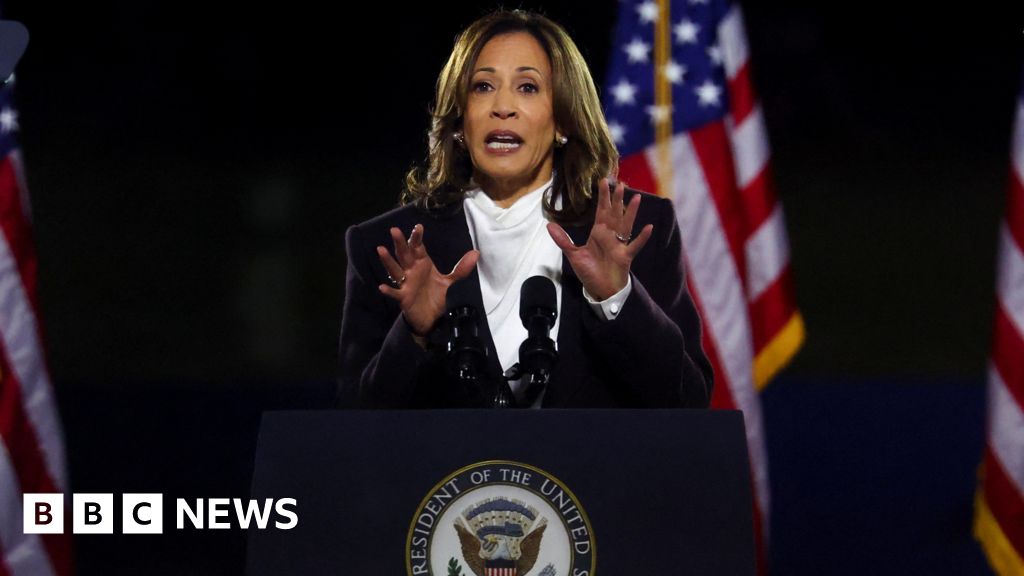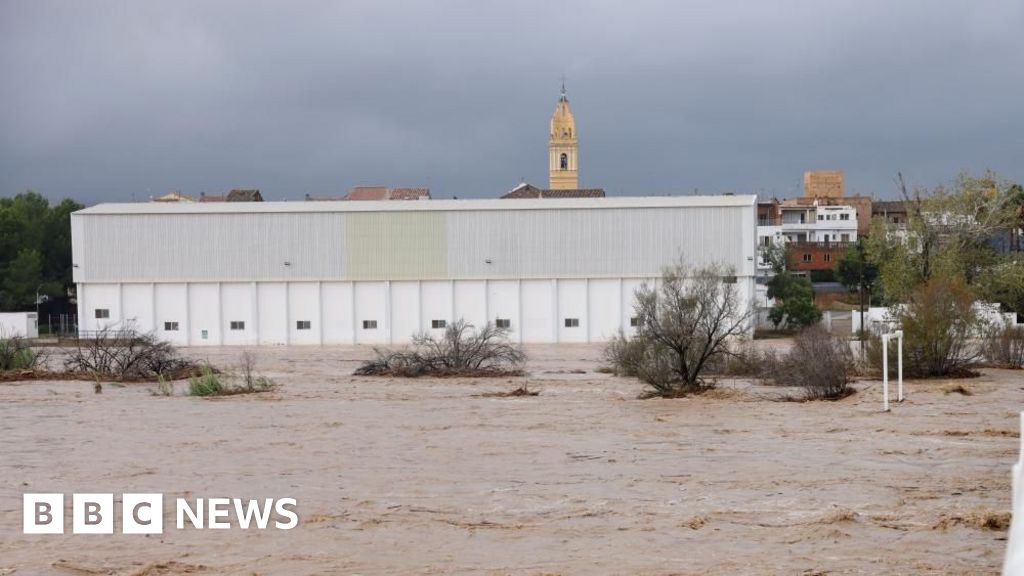ARTICLE AD BOX
 Image source, Reuters
Image source, Reuters
Nato currently has 4,500 troops stationed in Kosovo
The US is urging Serbia to withdraw what it says is a large military build-up on the country's border with Kosovo.
In the past months, tensions have been rising between Kosovo's minority ethnic Serb and majority Albanian communities.
In response to the "current situation", the UK said it was sending troops to join Nato peacekeepers there.
The military alliance said it was ready to increase its forces following a stand-off at a monastery in the north last Sunday in which four people died.
Speaking on Friday, White House National Security Council spokesperson John Kirby described the "large military deployment" of sophisticated tanks and artillery as "a very destabilising development".
"It's worrisome. It doesn't look like just a bunch of guys who got together to do this," Mr Kirby said.
"We are calling on Serbia to withdraw those forces from the border."
Mr Kirby said the build-up of troops had happened within the last week, but its purpose was not yet clear.
He added that US Secretary of State Antony Blinken had telephoned Serbian President Aleksandar Vucic to urge "immediate de-escalation and a return to dialogue".
Mr Kirby also said that US National Security Adviser Jake Sullivan spoke to Kosovo's Prime Minister, Albin Kurti.
Mr Vucic has not directly denied there has been a recent build-up of troops but rejected claims that his country's forces were on alert.
"I have denied untruths where they talk about the highest level of combat readiness of our forces, because I simply did not sign that and it is not accurate," Mr Vucic said.
"We don't even have half the troops we had two or three months ago."
Strained tensions between the two countries were inflamed on Sunday after a Kosovan policeman and three ethnic Serbian gunmen died during a siege of a Serbian Orthodox monastery in Banjska village on Sunday.
Kosovo's government accused Serbia's government of backing the incident.
On Friday, Milan Radoicic, the vice president of Serb List, the main Kosovo-Serb political party, resigned after admitting to organising the armed group. However, he denied receiving any help from Belgrade.
The deadly clash marks one of the gravest escalations in Kosovo for years, and follows months of mounting tension between the two sides.
After the break-up of Yugoslavia in the 1990s, Kosovo - a province of the former country - sought independence.
Serbia responded with a brutal crackdown against ethnic Albanians.
This ended in 1999 with a Nato bombing campaign against Serbia, between March and June.
Serbian forces withdrew from Kosovo - but for many Kosovo Albanians and Serbs, the conflict has never been resolved.
Kosovo declared independence in 2008 but Serbia - along with Belgrade's key allies China and Russia - does not recognise it.
Image source, Getty Images
Image caption,More than 13,000 people died in the Kosovan war of 1999
Many Serbs consider it the birthplace of their nation. But of the 1.8 million people living in Kosovo, 92% are ethnic Albanians and only 6% are ethnic Serbs.
As tensions continue to rise, Nato chief Jens Stoltenberg said on Thursday that he had "authorised additional forces to address the current situation".
It is the second time in three months that Nato has bolstered its forces in the country.
There are currently around 4,500 Nato-led Kosovo Force (KFor) personnel stationed in the country.
On Friday, the UK's Ministry of Defence (MoD) said it had made a battalion of between 500 and 650 troops available to KFor.
The MoD said the troops had recently arrived in the region for long-planned exercises.

 1 year ago
33
1 year ago
33








 English (US)
English (US)